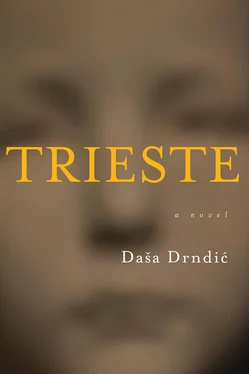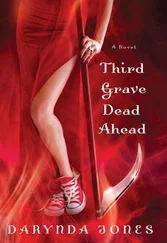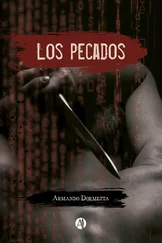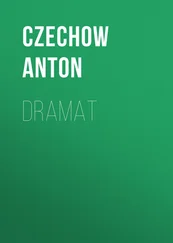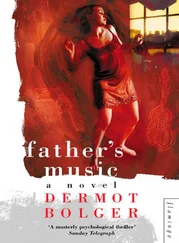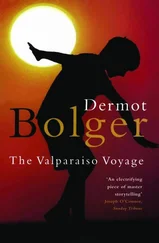I walk through Gorizia and I watch how a spent melody breaks off from its streets and the façades of its buildings. This melody drops onto my face like a mask, like a flattened sticky kiss that I do not wipe away. We know each other, this melody and I, so as I walk the two of us are silent and breathe shallowly. It is Monday, 3 July, 2006. At the Trattoria Piccola Grado on Via Morelli I order Kaiserfleisch, or rather costata di maiale affumicato cosparsa di cren fresco e accompagnata da gnocchi, then I set off for Via Aprica 47. The door will be opened by a woman with strong hands and thick hair, about forty years old, wearing winter shoes without laces on bare feet. The woman will smile and say, I told you, reality is boundless and indivisible. The woman will introduce herself as Ada Tedeschi-Urban, Haya Tedeschi’s niece, daughter of Haya’s sister Paula. She will be the woman I met on the train, and in whose features I shall seek traces of my own, just as I still look with horror at the photographs of S.S.-Untersturmführer Kurt Franz, from whose boyish grin a fist leaps and squeezes my face into a rigid grimace, into fear that his grin might settle on my lips. In the room, by a tall window, an old woman will be sitting in a rocking chair. By her feet there will be a big red basket, and around the basket letters, documents, photographs, newspaper clippings will be strewn, a heap of lifeless paper, just like the one I left behind me. The old woman will rise and turn to me. We will stand there like that, I, tall and greyhaired, she, petite and greyhaired. I will think, This is good, I’m not bald like him and my eyes resemble hers. I will think, Did I become a photographer by chance? and then immediately I will think, My photographs are powerful, his are rubbish, and I will think, He is dead, I am alive. I don’t like boxing, I’ll think, I don’t ride horses, I cycle. This will not console me.
When I write about the role of my mother in the universal history of infamy, I will not know who strolled around the San Sabba rice mill, who snapped pictures of San Sabba, my mother or I, who searched through the files of the officials of the Adriatisches Küstenland, she or I, who studied the details from the life of S.S.-Untersturmführer Kurt Franz, Haya Tedeschi or I, Hans Traube Antonio Tedeschi, who was it that visited Treblinka. Together, we will drape ourselves in the histories of others, believing that those pasts are our pasts and we shall sit and we shall wait for those pasts to fall into our lap like a fat, dead cat.
We shall wend our way through a Waste Land and I will say to her
I think we are in rats’ alley
Where the dead men lost their bones,
and she will ask
What shall I do now? What shall I do?
I shall rush out as I am, and walk the street
With my hair down, so.
What shall we ever do?
I will say
We shall play a game of chess.
There will be more withered stumps of time upon the walls. Staring forms will lean out, and leaning out they will hush the room enclosed. Footsteps will shuffle on the stair. And I will ask her
Do
You know nothing? Do you see nothing? Do you remember
Nothing?
And she will say
I remember
Those are the pearls that were his eyes.
At my back in a cold blast I hear
The rattle of the bones, and a chuckle spreads from ear to ear.
The awful daring of a moment’s surrender
Which an age of prudence can never retract
By this, and this only, we have existed
Which is not to be found in our obituaries
Or in memories draped by the beneficent spider
And I will ask her
What is that sound high in the air?
Murmur of maternal lamentation, she will say.
What is that city over the mountains? I will ask her.
Unreal City, Od’ und leer das Meer, a deserted and vacant sea.
Shall I at least set my lands in order? I will ask her.
Yes. You shall set your lands in order, she will say.
Ere the worm pierce your winding-sheet, ere the spider
Make a thin curtain for your epitaphs.
Then I will say
thank you
and servus,
now nothing matters.
Author’s Note and Permissions
For this book I have been researching the historical archives in several countries, in a number of languages, for two years. In the spirit an established tradition of documentary fiction, I have incorporated the voices of many figures and the words of many distinguished writers. I have made grateful use of these published works and acknowledged as many of them as I could. If there is any writer whose work I have not acknowledged, I will make due reference in any future edition in whatever language.
The first part, the early life of Haya Tedeschi, is based on an account by Frank Gent of the life of Fulvia Schiff and her family (“My Mother’s Story" 1996). In my book, the affair with an S.S. officer, and subsequent birth of a son, are fiction. In reality the Schiffs fled from Sicily to Albania in 1938 after the Nuremberg Race Laws, and lived there for six years until their return to Italy via Yugoslavia, Hungary, and Austria. Fulvia Schiff met a British soldier, Frank Dennis Gent, in Milan in 1945. She returned with him to England — where they still live — married, and had six children.
“To Whoever Is Reading Me” translated by Alastair Reid, from Selected Poems by Jorge Luis Borges, edited by Alexander Coleman, copyright © 1999 by Maria Kodama. Used by permission of Viking Penguin, a division of Penguin Group (USA) Inc. All rights reserved.
“To Whoever Is Reading Me” translated by Alastair Reid. Copyright © 1999 by Alastair Reid. From Selected Poems by Jorge Luis Borges, edited by Alexander Coleman (New York: Viking, 1999), p. 221. By permission of the Colchie Agency, New York. All rights reserved.
“In Praise of Darkness,” translated by Hoyt Rogers, copyright © 1999 by Maria Kodama; translation copyright © 1999 by Hoyt Rogers, from Selected Poems by Jorge Luis Borges, edited by Alexander Coleman. Used by permission of Viking Penguin, a division of Penguin Group (USA) Inc. All rights reserved.
“Elogio de la Sombra” from Elogio de la sombra by Jorge Luis Borges. Copyright © 1996 by Maria Kodama. “A quien esta leyendome” from El otro, el mismo by Jorge Luis Borges. Copyright © 1996 by Maria Kodama. Used by permission of The Wylie Agency LLC. All rights reserved.
From Selected Poems by Jorge Luis Borges. Copyright © Maria Kodama, 1998. Translation and notes copyright © Penguin Putnam Inc., 1998. Reprinted by permission of Penguin Group (Canada), a Division of Pearson Canada Inc. All rights reserved.
Adapted excerpts from Let Me Go by Helga Schneider. Copyright © Helga Schneider, 2001. Reprinted by permission of Walker Books, an imprint of Bloomsbury Publishing Inc. All rights reserved.
Adapted excerpts from Let Me Go by Helga Schneider. Published by William Heinemann. Copyright © Helga Schneider, 2001. Reprinted by permission of The Random House Group Limited. All rights reserved.
“Les seules verities” by Jean Giono. Reprinted courtesy of Sylvie Giono. All rights reserved.
Excerpts from Garden, Ashes by Danilo Kis, translated by William J. Hannher. English translation copyright © 1975 by Houghton Mifflin Harcourt Publishing Company. Used by permission of Houghton Mifflin Harcourt Publishing Company. All rights reserved.
Excerpts from Garden, Ashes by Danilo Kis, translated by William J. Hannher. Reprinted with the permission of Editions Fayard. All rights reserved.
Читать дальше
